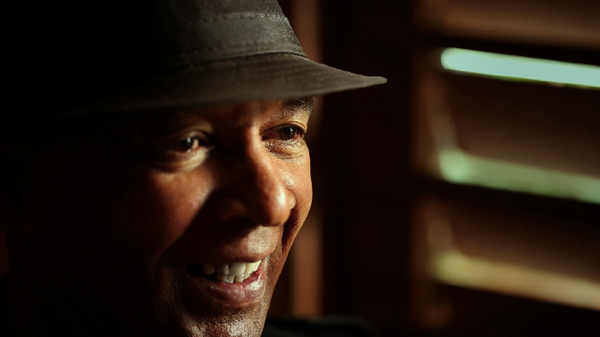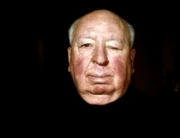What’s most impressive about The Skyjacker’s Tale is how convincingly the documentary changes our minds about its main subject, who, on New Year’s Eve of 1984, hijacked a passenger flight en route to New York City from the U.S. Virgin Islands. The skyjacker, Ishmael Muslim Ali, had years earlier been convicted for his part in a robbery that left eight people murdered, and while those facts are never in dispute, director Jamie Kastner manages to cast doubt over so much else about him.
The film’s early scenes focus on the two events most inextricably tied to Ali: the aforementioned hijacking, in which he eventually forced the plane to land in Cuba, and the bloody event known as the Fountain Valley Massacre, which occurred in St. Croix in 1972. Kastner explores one and then the other, showing how the two crimes seem too different to have been committed by the same person. To take over the flight, Ali, as a prisoner, had to escape his handcuffs as well as outmaneuver several burly, armed men, a feat requiring patience and cleverness to spare. By contrast, the massacre was hard, fast, and violent, involving countless rounds unloaded rapidly at an upscale golf resort—and all for a small amount of money. It’s possible Ali took part in both crimes, but the mass shooting doesn’t seem to match his modus operandi.
Such a bloody deed also seems incongruous with a man who had served in the Vietnam War (he was eligible to join the U.S. Army, due to the Virgin Islands’ status as an American territory), which led to an incident of friendly fire that still haunts him. He subsequently rejected American ideals of democracy and embraced communism. The film makes a point that this was during the 1960s, a turbulent era in which legions of Americans, albeit from the mainland, went through similar forms of rebellion. In Ali’s case, he became awakened to the economic and racial inequalities in his own homeland, and so he returned to St. Croix, where he supported himself through petty criminal activity while taking part in a movement for a free and independent Virgin Islands.
If the first half makes viewers question whether Ali could be a cold-blooded murderer, the second half explores how a possibly innocent man could be convicted for such a crime and punished with eight consecutive life sentences. Kastner’s theory is that the massacre hurt tourism to the islands, and so the U.S. government acted swiftly to punish Ali and several other co-defendants. Through interviews with various attorneys, law enforcement officials, and other parties who took part in the original arrest and trial, the film argues that the original proceedings amounted to a kangaroo court. In particular, there’s the issue of whether torture was used by police to secure confessions, which the court, presided over by a flunky of the Nixon administration, treats in a manner that seems highly non-conducive to attaining actual justice. Kastner gives equal time to persons on both sides of the case, yet the prosecution gradually seems less and less credible.
The film reframes the initial skyjacking as a desperate attempt to escape persecution, as opposed to a guilty man trying to avoid justice, and turns Ali into a hero in the mold of Richard Kimble in The Fugitive (whom the subject at one point compares himself to). The resemblance of his story to potboiler fiction doesn’t seem lost on the filmmakers either. Kastner repeatedly uses dramatic recreations that allow for a more visceral experience than real-life people talking to the camera would provide. However, their tone often resembles any by-the-numbers thriller. During the staged version of the hijacking, there’s a moment in which the camera cuts to a series of worried reaction shots by the passengers, after they learn their plane has been commandeered by none other than Ishmael Muslim Ali.
It’s as if the intent was to mythologize the subject toward the start of the film and then show that his real-life story was even more unbelievable. Although Bradley Gordon does a fine job portraying the younger Ali in the reenactments, it’s the actual man interviewed in present-day Cuba who leaves the more lasting impression, his initial bravado giving way to a somewhat tragic figure. While he has a wife and family now, and has never had to worry about the Cuban government extraditing him back to the States, he understandably laments his separation from family members and native land. One can view The Skyjacker’s Tale as an attempt to correct a possible miscarriage of justice, but it’s also a highly empathic tale of someone who made a desperate stab at freedom, only to be trapped by his success.







Leave A Comment